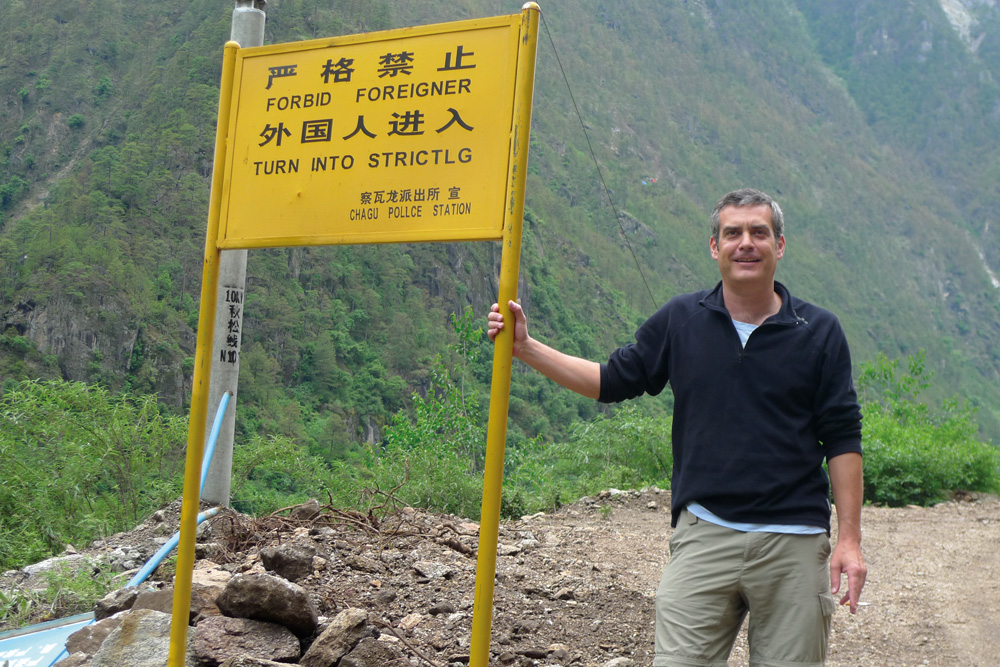A new book offers a tantalising insight into China’s lesser-known regions. Wayne McCallum reviews The Emperor Far Away: Travels at the Edge of China and talks to its author, David Eimer.
…..
 “…China’s distant frontiers are places where nationality is a nebulous concept, where the passport a person possesses is less important than their ethnicity… [T]hey are areas where the old Chinese adage ‘The mountains are high and the emperor far away,’ meaning Beijing’s hold over the locals is tenuous and its influences unwelcome, still resonates.”
“…China’s distant frontiers are places where nationality is a nebulous concept, where the passport a person possesses is less important than their ethnicity… [T]hey are areas where the old Chinese adage ‘The mountains are high and the emperor far away,’ meaning Beijing’s hold over the locals is tenuous and its influences unwelcome, still resonates.”
So writes former Sunday Telegraph China correspondent David Eimer, setting the tone for his travelogue that shines new light on the less visited margins of the Middle Kingdom.
And what a journey.
With the world’s longest border (22,117 kilometres) and 14 country neighbours, Eimer does a remarkable job to travel to all four corners: from the borderlands of Russia and North Korea, to the desert margins of Mongolia and the humid jungles of Burma. It is a long, sometimes difficult trip, but one where Eimer’s journalistic eye is constantly at work.
Eimer’s travels are seldom dreary and at times he is required to exhibit the tenacity of Richard Burton (the explorer, not the actor) in order to continue. This includes being virtually force-fed yaba under the gaze of fawning hostesses in the narco-state of Wa. For his craft, Eimer is able to stay the course for reasons of survival if not always choice.
One key question that Emperor raises is the capacity of China to hold its ethnically diverse regions together, the author describing the country as a “huge, unwieldy and unstable empire.” Yet, as experiences from Manchuria show, China has shown incredible persistence on its fringes. Here in Manchuria, a combination of Han chauvinism and party rigidity has perpetuated a process of assimilation to the point where only a handful of native speakers remain.
A satisfying aspect of Emperor is the way Eimer brings out the stories of the people and places he encounters. In doing so, inadvertently perhaps, he offers a timely update to a similar journey made 20 years earlier by the Chinese writer Ma Jian (Red Dust). It leaves one wondering what Eimer will do for an encore from his new home in Phnom Penh: retrace the steps of Andre Malraux?
4.5 Emperors out of 5.
INTERVIEW WITH DAVID EIMER
Western writers seem drawn by a desire to travel and document China. What was your inspiration for Emperor?
The thing with China is that there are so many people. The more people, the more stories there are. The landscapes are incredibly varied. It’s a continent rather than a country, and the contrast between the cities and rural areas are huge. I liked China. I first went there at 21 and fell in love with it, and that’s why I moved there, eventually, to live and work. In China it’s never boring. Stressful sometimes, but not boring.
Were there times during your China travels when you thought, “Okay, this is it?”
No. I always think in China and Southeast Asia generally the greatest risk comes on the roads. I have certainly had bus rides in China where I have asked, “Has the driver been up all night drinking?” I never felt like I was going to be attacked. In Wa, we were there as guests, so that was okay.
Do you think that China will be able to hold its ethnically diverse regions together, or will it collapse under internal pressures and contradictions?
That’s a key question and one of the reasons I did the book. We used to think that the biggest risk to the CCP [Chinese Communist Party] would be another democracy uprising. But I do not think that will happen. I think the biggest challenge is at the far ends of China. And they have recognised that now. In Yunnan, Tibet and Xinjiang the borders are now a lot tighter than when I traveled there. I think Beijing is very concerned about maintaining control of its borderlands.
Can you tell us anything about your next book project?
I am writing a proposal for a book on Burma, so wait and see.
